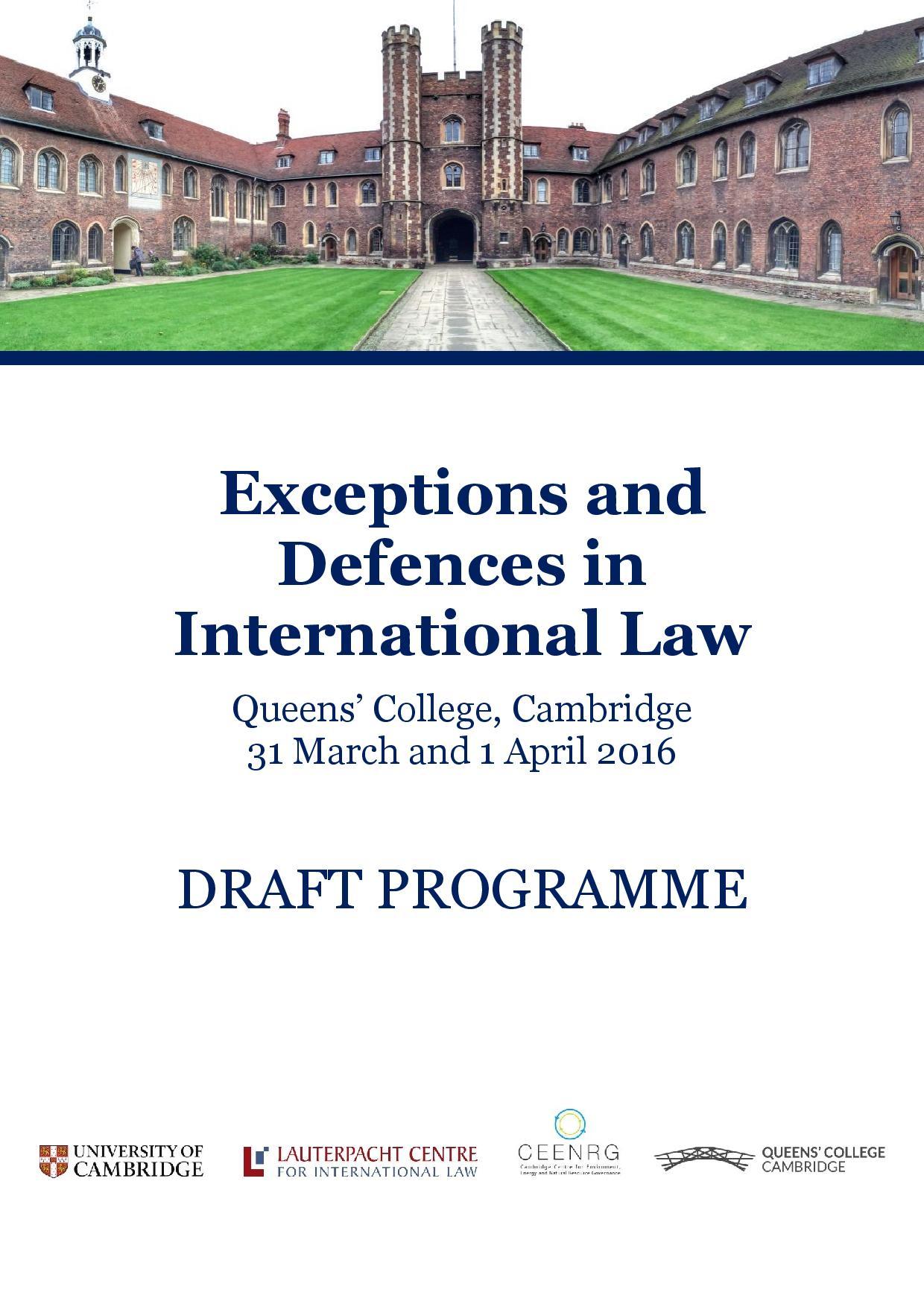
Submitted by Administrator on Wed, 30/03/2016 - 12:44
Queens’ College, Cambridge
31 March and 1 April 2016
* Exceptions and Defences in International Law, an event jointly organised by C-EENRG, the LCIL, and Queen's College
Panel sessions will take place in the Munro Room. Coffee breaks and lunch will take place in the Old Senior Combination Room
Download Draft Programme:
https://drive.google.com/file/d/0BxsJfqqFi33FclMwMzBfbk9OTG8/view?usp=sh...
Many international obligations are subject to exceptions. These can be expressed in several ways: an obligation may be vitiated by the presence of one of its constitutive negative requirements (eg absence of consent), or an obligation may be set aside by the application of another more specific rule, or an actor might have a right to act in a certain way notwithstanding a contrary obligation. Exceptions are also of fundamental practical importance: for example, they affect the allocation of the burden of proof. While claimants must prove the relevant rule, the burden of proving exceptions falls on defendants. This particular implication has played a significant role in litigation before the World Trade Organization. It has also given rise to conflicting interpretations of what exceptions are. It is notable that, despite their ubiquity, there is no systematic and analytic study of exceptions in international law. This project examines this topic for the first time. The aim is twofold: to provide a theoretical framework (or frameworks) for the understanding of exceptions, and to apply these theoretical frameworks to specific areas of international law.
The intention in this workshop is to provide a forum for participants from both legal philosophy and international law to learn from one another. The legal philosophers will present different accounts of exceptions in the law, from various different perspectives, including formal logic, logic of defeasibility, legal reasoning, artificial intelligence and psychology. This work will show that there exists a variety of approaches to the structural role of exceptions in the law, and that a number of practical implications flow from each approach. The international lawyers, in turn, will consider exceptions in different fields of international law, in light of the insights of the legal philosophers. These presentations will elaborate on generic issues applicable to exceptions in international law (treaties, state responsibility, peremptory rules, burden of proof) and specific issues arising from exceptions in particular subfields of international law (use of force, international criminal law, human rights, trade, investment, environment, jurisdictional immunities).
Papers from this workshop will be published in Bartels and Paddeu (eds), Exceptions in International Law (OUP, 2017 forthcoming).

